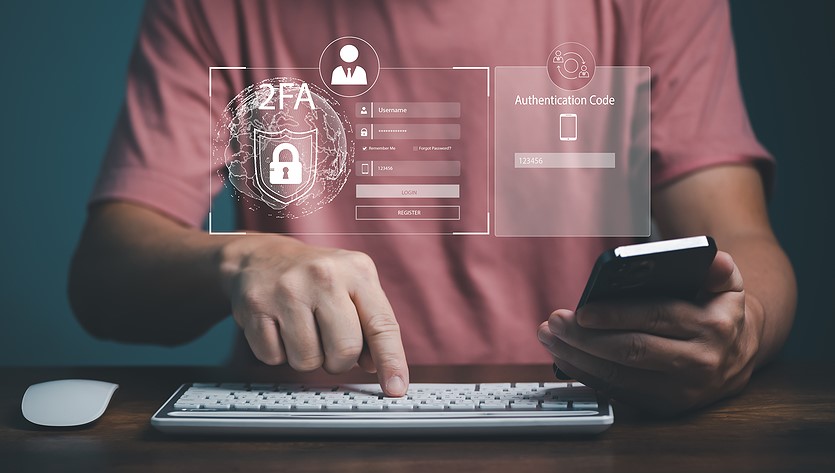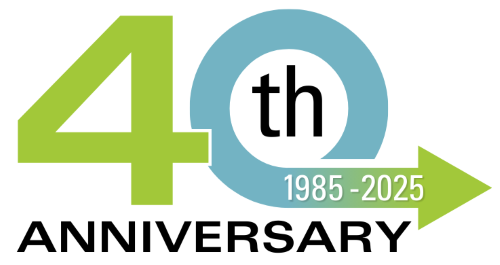Financial Awareness Day: Is Your Information Secure?
First celebrated in 2019, National Financial Awareness Day is observed every year on August 14. It’s a great reminder to count our pennies to make sure we are on track with our financial health, but also a cautionary to protect our pennies from financial thieves. Don’t think it’s important? Here are some staggering statistics to be aware of:
- Financial Wealth: 58% of Americans have less than $1000 saved and 50% of American households live paycheck to paycheck
- Financial Loss: According to the American Association of Retired Persons (AARP), American adults lost a total of $43 billion to identity fraud in 2023.
On August 14, take some time to review and enhance your financial security using these 10 key steps to protect your information:
1. Strengthen Your Passwords
Cybernews reported that the most common password used in 2024 is “123456,” followed closely by “123456789.” If either of these is your password, be aware that 30% of internet users have experienced a data breach due to weak passwords. Strong passwords should have at least eight characters, a mix of letters, numbers, and symbols, and avoid personal information that can be easily guessed. If you find passwords hard to remember, consider using a password manager. These apps securely store and manage your passwords, ensuring they are backed up and protected.
2. Enable Two-Factor Authentication (2FA)
Think of 2FA as a bouncer for your bank account, allowing access only to those who can provide two forms of identification. This identity and access management security method significantly enhances the security of your accounts by requiring not just a password but also a second piece of information, like a code sent to your phone. Implementing 2FA can help monitor and safeguard your vulnerable information and networks.
3. Regularly Monitor Your Accounts
Checking your financial accounts as frequently as you check your social media could make a huge difference. Regular monitoring of your bank and credit card statements helps you catch any unusual activity promptly. This proactive approach makes it much harder for fraudulent transactions to go unnoticed.
4. Be Wary of Phishing Attempts
If you receive an email claiming you have a $2.5 million gift from a mysterious benefactor, it’s likely a scam. However, not all phishing attempts are as obvious. Be cautious with emails, texts, and calls from unknown sources. Avoid clicking on suspicious links or sharing personal information digitally. Phishing is the most common form of cybercrime, with an estimated 3.4 billion spam emails sent daily. If you receive a suspicious phone call, hang up immediately. If the call is legitimate, the person will contact you through a verified method.
5. Secure Your Devices
Just as you lock your doors, car, and bike, your gadgets also need protection. Use antivirus software and keep your devices updated with the latest security patches. Cybercriminals are constantly evolving their methods, and staying ahead of them requires vigilance and updated defenses.
6. Shred Sensitive Documents
Shredding isn’t just for surfboards and weight loss; it’s also crucial for protecting your information. Never dispose of documents containing personal information without first shredding them. Implement a shred-all policy to ensure no sensitive information accidentally gets thrown away intact. For the most thorough protection, consider using a professional shredding service, even if you only have a small quantity of documents.
7. Use a VPN in Public
A Virtual Private Network (VPN) provides a secure connection when using public Wi-Fi networks. Everyone should use a VPN to protect their online activities, especially when accessing sensitive information in public places. A VPN hides your browsing activity, identity, and location, offering greater privacy and security for your financial information.
8. Check Your Credit Reports Regularly
Regularly reviewing your credit report is essential to detect any signs of identity theft. Aim to check your report at least once a year to ensure no one has opened credit accounts or loans in your name. You can obtain a free annual credit report from each of the three major credit bureaus: Equifax, Experian, and TransUnion.
9. Stay Informed
Stay current with the latest scams and be aware of the methods criminals use to access your information and finances. Knowledge is power; staying informed helps you remain vigilant and less susceptible to fraud.
10. Be Cautious on Social Media
We often share too much information online without realizing the potential risks. Avoid posting personal details like birthdays, addresses, phone numbers, or any identifying information. Refrain from sharing vacation plans or photos until you’ve returned. Identity thieves often use social media to gather information that can help them access your financial accounts.
By following these steps, you can significantly enhance your financial security and reduce the risk of fraud and identity theft. DataSafe’s shredding service can assist you in protecting your personally identifiable information by securely destroying your documents. We offer convenient drop-off solutions for homeowners and small businesses, ensuring no shredding job is too small.
Let’s celebrate Financial Awareness Day by bolstering your financial protection. Contact us at 503-620-3423 or complete the form on this page to get started.

Get Your Quote
"*" indicates required fields

